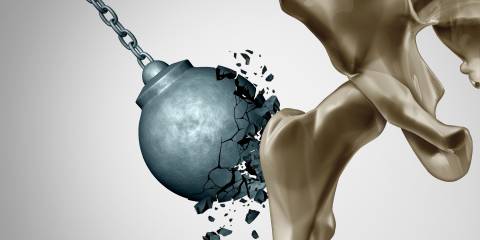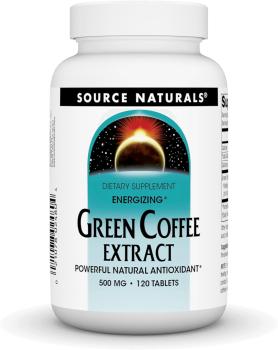Women have unique nutritional needs—whether they’re in their childbearing years or beginning to experience signs of menopause.
Here are three examples, along with some suggestions from Taste for Life editorial advisors and staff.
The 20s
At 27, Tamara’s ready to start a family, but she and her husband Matt haven’t had any luck yet.
“For the first few years after we were married, we were concerned about putting enough savings away to afford kids. Now that we feel more comfortable financially, nothing’s happening,” she says. “I feel great. My periods are regular. Why can’t I conceive?”
Because she’s struggled with her weight since middle school, Tamara has followed a low-fat diet. She’d like to find more time to cook during the week, but after commuting long distances, the couple often picks up sushi from a nearby Japanese restaurant.
“Sometimes I’ll cook up a batch of lentils over the weekend to add to soup or a quick salad.”She doesn’t eat meat and avoids full-fat dairy.
TFL: It takes two to tango, so both you and your husband will want to consult a fertility specialist if you don’t conceive after a year. That said, this is not the best time to be on a low-fat diet. One study of more than 17,000 women suggests a healthy “fertility diet” may increase a woman’s chance of conceiving. This diet is high in monounsaturated fat (like olive oil) and full-fat dairy, as well as vegetable protein and iron.
Whole yogurt and cheeses, preferably organic and produced without antibiotics, synthetic growth hormones, sewage sludge (a source of heavy metals), and persistent toxic pesticides—none of which you want to be ingesting before you become pregnant—may be good additions to your diet.
Women considering pregnancy need at least 1,000 mg of calcium daily—another reason to add dairy into your diet. Sardines are another great source of calcium. If you're vegan or can’t tolerate these foods, take a calcium/magnesium/vitamin D supplement.
Lentils are just one source of vegetarian protein: Fermented soy foods (tempeh and tofu) and a wide range of legumes are other excellent sources.
Nix the sushi for now, but do eat cooked fish and seafood twice a week. Or take a high-quality fish oil or algae supplement to ensure sufficient omega-3 fats.
Avoid artificial sweeteners in diet foods too.
While it doesn’t sound like you eat many highly refined foods, it’s easy to miss out on nutrients if you’re not eating five or more servings of fruits and veggies every day. Keep plenty of fresh fruit on hand, and—since weight is a concern—lots of salad fixings.
For a little “insurance” before conception, take a complete multivitamin/mineral formula with B complex (folic acid to reduce the risk of neural tube birth defects, along with vitamins B6 and B12, are especially important), iron (since it’s often hard to get enough from plant foods), zinc (a deficiency is detrimental to fertility in both men and women) and other critical nutrients.
If you drink coffee or caffeinated teas and sodas, this is a good time to stop or cut back, since caffeine is a stimulant linked to impaired fertility, as well as problems during pregnancy. It’s also wise to cut out alcohol and other drugs (including nicotine), so check with your healthcare provider if you take prescription medications.
Pregnant Women
You may not know it, but getting enough folic acid (vitamin B9) before you get pregnant (as well as during pregnancy) greatly lowers the chances that your baby will be born with serious birth defects such as spina bifida.
All women of childbearing age should consume about 400 micrograms a day of this crucial vitamin. Pregnant women need 600 micrograms. Many breakfast cereals, pastas, breads, and rice are fortified with folic acid. The vitamin is found mostly in dark green, leafy veggies (kale, spinach) and you can also obtain it by drinking fortified orange juice. Taking prenatal vitamins ensures you're getting an adequate amount.
The 30s
At 35, Caroline says “I have it all or maybe too much of it: work, great kids, a terrific spouse, and an active social life. I just don’t seem to have any energy by the end of the week—just when I want to start enjoying life. I get really cranky if I can’t veg out over the weekend.”
Besides fatigue, Caroline complains of headaches, digestive troubles, PMS, and recurrent vaginal and urinary tract infections (UTIs). “Sometimes I just space out. I even forgot to pick up one of my children from daycare recently! I’m always craving sweets, so it’s hard to lose those extra pounds I put on after each pregnancy.”
She says her kids are picky eaters, and “my husband buys a lot of packaged dinners that help cut down on cooking time. While these aren’t the greatest choices, I find myself finishing up the food the rest of my family leaves on their plates.”
TFL: Given your recurrent yeast infections and UTIs, fatigue, and other symptoms, candida may be your problem. Approximately 75 percent of American women experience candida infections during their childbearing years.
Go to www.yeastconnection.com for an online evaluation. If it’s candida, visit your favorite natural products store each weekend to shop for fresh and frozen low-glycemic veggies (asparagus, broccoli, cabbage, celery, eggplant, garlic, leafy greens, onions, peppers, snap beans, and tomatoes), quality protein (fish and seafood, lean antibiotic-free poultry or free-range meat, and organic eggs), organic butter, high-quality olive oil, nuts, and seeds.
Also enjoy brown rice, oatmeal, and other grains (like amaranth and quinoa).
Caprylic acid, found in coconut and palm oil, may also be effective in fighting candida.
Eliminate sweets (including fruits and all packaged foods), as well as anything with mold or yeast (bread, cheese, leftovers, malt products, mushrooms, and wine) for three weeks. Avoid all alcoholic and diet drinks as well as fruit juices (vegetable juice is fine).
Drink plenty of pure water, and try a little taheebo (pau d’arco) tea.
These are big changes, we know, but this elimination diet is only for three weeks: You can do it—and you’ll feel much better. For added support, consider a good multi, as well as garlic, oregano oil, and probiotic supplements to help rid your body of yeasts and other pathogens.
The 40s
At 44, Laura heads her own successful business and enjoys traveling with friends. But suddenly she finds her face and neck turning beet red for no reason, has trouble sleeping at night, and feels like she’s on an emotional roller coaster even though she has the life she’s always wanted.
“I never seem to know when my period’s coming. My waistline’s disappearing, and I’m packing on pounds for the first time in my life. I’ve been losing hair on my head—only to find whiskers popping up on my chin and upper lip.”
Supremely confident all her life, Laura has begun rambling in meetings, sometimes forgetting colleagues’ names and even daily tasks. “PMS has reared its ugly head. I’m bloated for weeks and incredibly irritable. What’s happening to me?”
TFL: Perimenopause is a natural—if often disconcerting—transition to menopause among women between 35 and 50. Diminishing production of estrogen and progesterone by the ovaries can lead to all the symptoms Laura’s noticed—as well as others that aren’t so obvious, such as loss of calcium in the bones and risk for heart disease. Essential fatty acids in cold-water fish, flaxseed, and black currant seed oils can help balance hormones and reduce hot flashes, as can fermented soy; these foods can support cardiovascular health, important as women begin to lose their natural hormonal protection during these years.
A multi with B complex, vitamins C and E, and magnesium can help smooth out mood swings, while lessening anxiety, bloating, and insomnia.
Replace high-glycemic carbs with fiber-rich fruits and veggies that help fill you up without adding pounds, and make sure you’re getting plenty of calcium, magnesium, and vitamin D in a bone-building formula.
Several herbs may also be useful. Black cohosh supports hormone balance, while helping to relieve depression and hot flashes. Also advised for the blues and estrogen production, eleuthero (formerly known as Siberian ginseng) supports adrenal function (likely to be weakened by stress) and improves mental abilities.




